
Antitrust lawyer: Apple ebook deals are illegal
Steve Jobs left behind a legal mess for Apple chief executive Tim Cook. Decisions the former CEO made when brokering ebook distribution deals haunt Apple, as a civil price-fixing case moves forward and the specter of a federal antitrust investigation approaches. Microsoft cofounder Bill Gates left Steve Ballmer in similar straights in early 2000. Look what happened to Microsoft since.
Apple is alleged to have colluded with major publishers to fix ebook prices, in violation of US antitrust law. There has been little analysis from legal experts on whether or not Apple is actually in danger of criminal complaint. I sat down with William Markham, a partner with San Diego-based law firm Maldonado & Markham, to understand the basics of the civil ebook case and possible federal criminal action. It seems like Apple may find itself a target of antitrust claims in short order, if Markham is right.
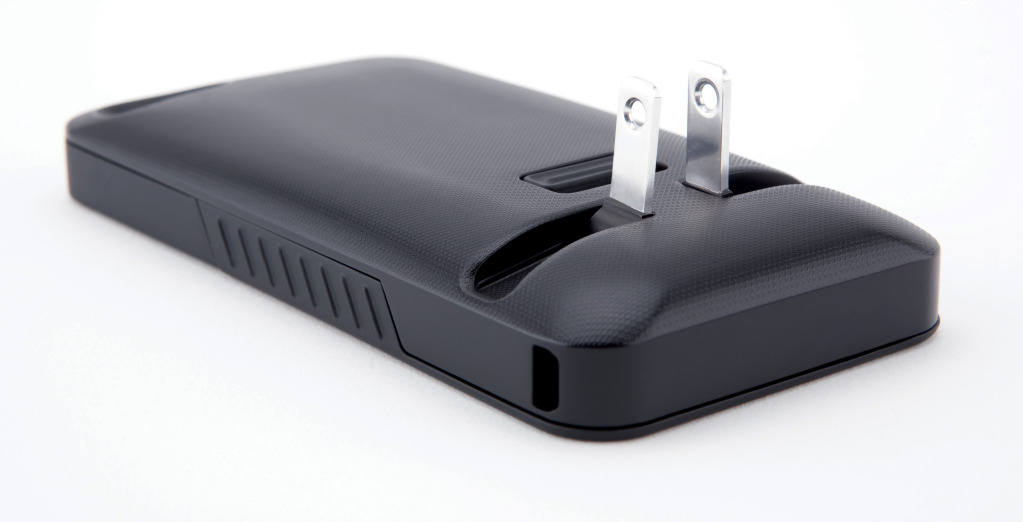
I am breaking my own rule by writing about this iPhone charger, that's how cool it is
As a tech writer, there are two things that I avoid like the plague: iPhone cases and iPhone cases. I say this as two separate instances because there are so freaking many of the things that avoiding them is a full-time job. Marketers indiscriminately shower me with information about various cases even though I have never displayed an interest in them, nor do I even own an iPhone.
In 2011, my BetaNews email address got 209 different email pitches about iPhone cases. Seriously…they were all different ones (Thanks to Tout for the inbox analysis, by the way.)

Android rules the world?
Analysts love to make predictions. It's a no-risk gambit, because the forecasts are years away and nobody remembers if they're wrong. After thrice predicting that Windows Phone would beat out Apple's iOS by 2015, IDC has another for the same year: Android media tablet shipments will exceed iPad. By that reckoning, the firm predicts that Google's mobile OS will dominate the two major cloud-connected -- post-PC, if you insist -- device categories (the other being smartphones).
"As the sole vendor shipping iOS products, Apple will remain dominant in terms of worldwide vendor unit shipments", Tom Mainelli, IDC research director, says. "However, the sheer number of vendors shipping low-priced, Android-based tablets means that Google's OS will overtake Apple's in terms of worldwide market share by 2015. We expect iOS to remain the revenue market share leader through the end of our 2016 forecast period and beyond".

Hmm, a 16" freestanding USB-powered monitor for $99. Don't mind if I do.
Since I am a full-time multi-display PC user, using a standard, single-display notebook on the road always makes me feel like I'm working with one hand tied behind my back. I've grown so accustomed to the additional screen real estate that it has become integral to my work flow.
If you look through my history here at BetaNews, you can see I've tried many of the mobile solutions designed to bring extra monitors to the mobile office…portable mini-monitors, tablet-based screen extenders, and so forth. Unfortunately, none of them have stuck.

Tyranny of Numbers Two: Why cellular carriers can't meet data capacity
As I passed through the gates of the Mobile World Congress in Barcelona, Spain last week, it struck me that the protests outside served as a metaphor for a collection of conference keynotes that warned of the impending wireless capacity crunch. Neither had much to do with the sea of booths showcasing creative new data-intensive apps and ever-more capable smartphones and tablets. But sooner or later, both will prove to be disruptive to those who are trying to make a living selling the products on the show floor.
It only took a few days for the demonstrations along the Plaza de Espaňa to chip away at the exhibitors’ bottom line. The protests -- at first by public transport workers and increasingly by students objecting to budget cuts -- swelled from a curiosity into an impediment as they grew larger and more forceful. Traffic sputtered after police blocked the main entrance and forced attendees to exit out the back. Some left early. Others arrived later the following day to avoid the crush.
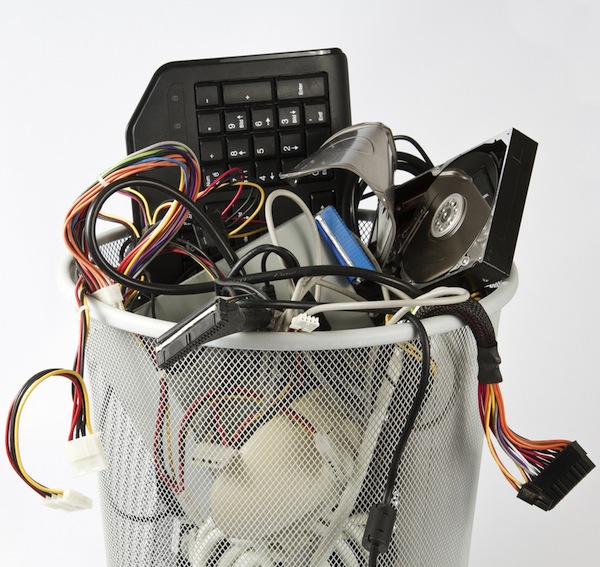
Does iPad make the PC obsolete?
The question is really about the "new iPad" that Apple launched earlier this week. I say "Yes", for many people needing to upgrade their computers. Many of you will answer "No". Who is right?
The new iPad is a transformative device, extending on the disruption caused by the original model in April 2010 and its successor a year ago. The 2048 x 1536 resolution display is main reason. For many people, the new iPad will offer the best computer screen they can afford, and, if they get a 4G model, one that is always connected. New iPad is the poster child for the cloud connected-device era.
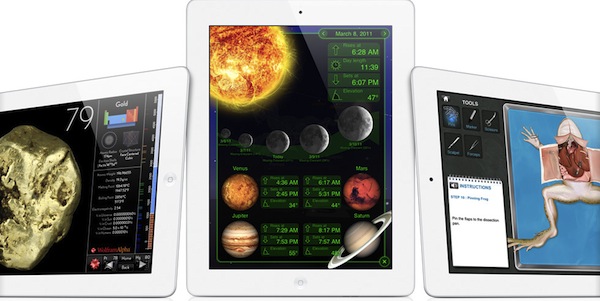
Why does iPad need a HD display?
Tomorrow, Apple holds a media event where the next iPad is expected to launch. There are rumors aplenty, with the most consistent being higher-resolution display -- 2048 x 1536. That's mighty big for a small screen. While the Apple Fan Club banters around rumors like Depression Era kids kicking tin cans, I wonder about the fundamental question: Why does iPad need a high-res display?
It's not an idle question; 2048 x 1536 is unusually high resolution in computing. My Lenovo ThinkPad T420s display is 1600 x 900. Apple's 15.4-inch MacBook Pro is available with resolution up to 1680 x 1050. Then there is 1080p, which is 1920 x 1080. By many measures, iPad with greater-than HD resolution would be exceptional. That's nice to have, but do you really need it on a 9.7-inch screen? Someone does, and Apple is right to go after the market opportunity. For starters: Education, healthcare and publishing. Simply put: An iPad HD would be a transformative product.

Play dead, Android Market
Google on Tuesday unveiled a major change to the Android Market: a name change.
Since Google's content market is for Android devices and beyond, the destination formerly known as the Android Market, is now known in the United States as Google Play.
Last year, Google completed its upgrade of the Android market, adding video, music, books, and a rich browser-based interface to the store which had previously only offered Android applications and games.
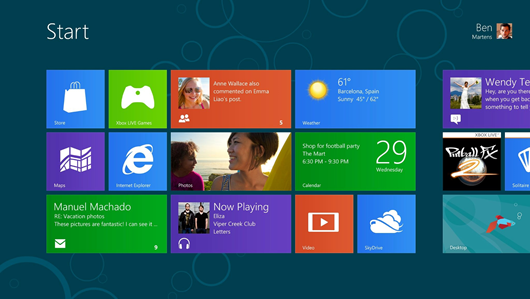
Microsoft, Metro takes our choice away!
I don't dislike Metro, as indicated in my Windows 8 Consumer Preview review. That doesn't mean everyone will, or even should embrace the new user interface. Early reception to Metro is mixed. I think Windows 8 has great potential and may be a market success, but Microsoft should listen to those people complaining about the "reimagined" UI.
Microsoft should pull back from its Metro frenzy and take a more commonsense look at how real users do things. There needs to be better intergration between Metro and the desktop motif. Rather than view the desktop simply as a legacy environment and put all their "eggs" in the Metro "basket", Microsoft should give more priority to the "old way" and to better integrating the two UI motifs so they flow as one. Windows 8 is one operating system, not two.
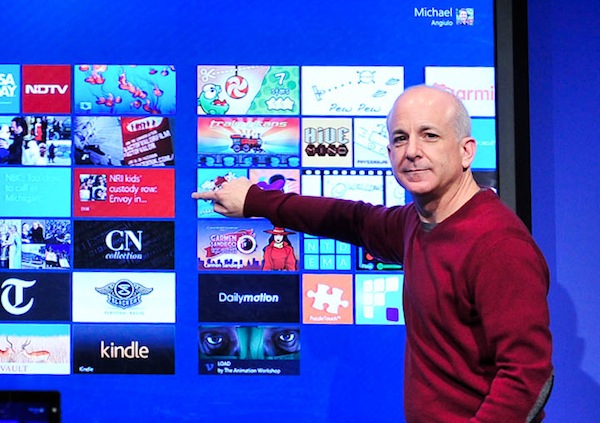
Windows 8 'Metro' is revolutionary
February 29 is the day I waited for for a long time. I downloaded the Windows 8 Consumer Preview to test out the work Microsoft has done so far, and I am very impressed. There are still some rough edges, though, but I like what Microsoft is doing. Strangely, I seem to be one of the few people that actually "get it".
As a designer, I am perfectly on board with anything that allows print and digital to come together in interesting ways. Mike Kruzeniski, who is a Creative Director at Microsoft, gave presentation "How Print Design is the Future of Interaction" at SXSW 2011 discussing this convergence. In interactive, content is important. We are quickly moving to a time where the lines between print and interactive content are blurring. And herein lies the problem with Windows 8. I refer to Metro, Windows 8's new motif that is receiving mixed reaction from testers.

You can trust Google to spy on you
Google's new privacy policy takes effect today, March 1. There are significant changes on how your data is handled across the Google family of sites, and that's enough to raise the concern of privacy regulators in both the European Union and Japan.
Their concern should be yours, too. Who's that looking over your shoulder online? Google.
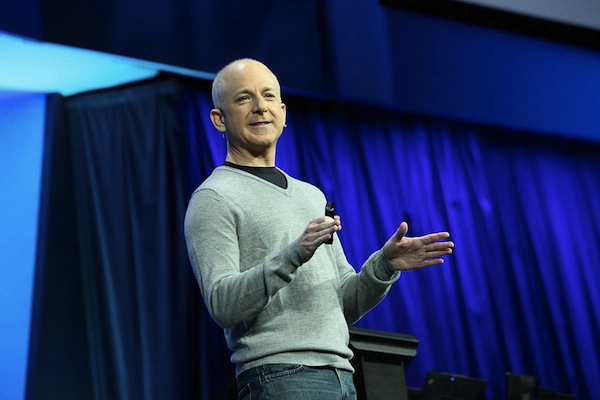
Eight reasons why Steven Sinofsky is Microsoft's next CEO
As Windows chief Steven Sinofsky takes the stage in Barcelona Wednesday to debut the Consumer Preview of Windows 8, there's a sense that a new era is dawning at Microsoft. Windows is about to take a dramatic turn and Sinofsky is very much responsible for that.
On top of this, Windows is coming out on time (AGAIN!), a real change in Microsoft's track record of missed deadlines. With current CEO Steve Ballmer's time at the helm arguably less than stellar, you have think there must be someone waiting in the wings at Microsoft to take his place.
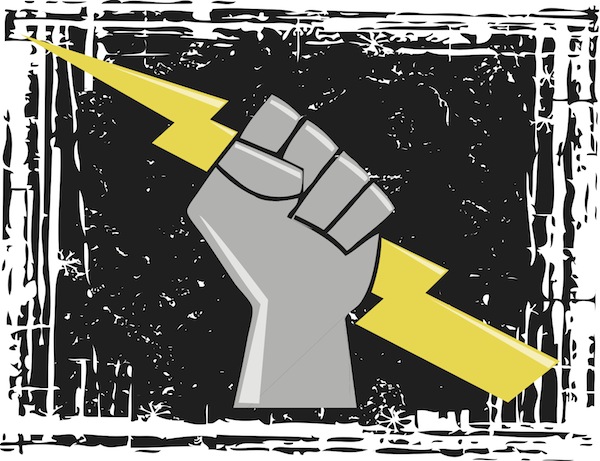
Apple steals Mobile World Congress' thunder
Early today I asked colleague Tim Conneally in group chat: "What happened to Mobile World Congress? One day of announcements and nothing else?" Because Day 2 is unusually light on product news. Perhaps that's good thing for participating vendors, because late this morning Apple stole the show.
The Cupertino, Calif.-based company dispatched email invites for a March 7 event, presumably announcing iPad 3. The message teases: "We have something you really have to see. And touch". Well, Apple did Microsoft a favor by not sending invites tomorrow, when Windows 8 Consumer Preview debuts at Mobile World Congress. Or perhaps someone at Apple wisely considered that Microsoft's announcement is simply too big to thump -- or that getting in ahead steals thunder enough.
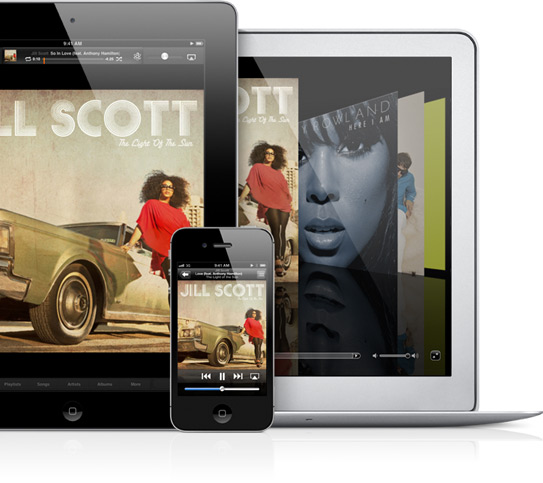
Apple is winning the mobile platform wars
In October 2009, I explained why "iPhone cannot win the smartphone wars". Many of the reasons then still hold true today. But I wrote that analysis before Apple released iPad. So, 10 months later I followed up with "Apple can still win the mobile platform wars, but it won't be easy". Now, 18 months later, as Mobile World Congress starts in Barcelona, Spain, I claim: Apple is winning the mobile platform wars, but achieving ultimate supremacy won't be easy.
In August 2010, I observed: "Pundits already are predicting iPhone's death brattle before the great Android god. I wouldn't write off Apple just yet. The mobile wars are bigger than smartphones, as Apple already has shown". Little has changed since. Android apologists still predict victory over iOS, while ignoring fundamental platform gains that put Apple in front.
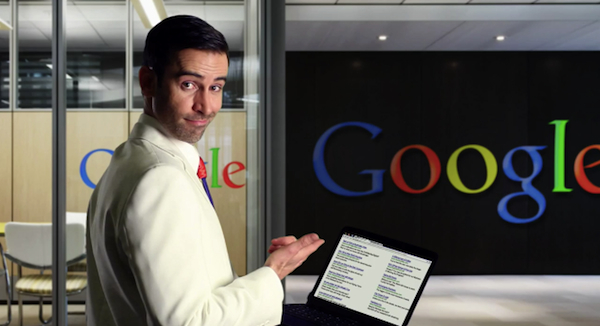
Microsoft goes for Google's throat
Microsoft is stepping up its anti-Google campaign, in a couple new moves clearly intended to generate FUD (fear, uncertainty and doubt) about its rival's products, corporate image and credibility. In the past two days, Microsoft launched at least two separate offenses: one against Google Apps, which competes with Microsoft's key businesses -- productivity software -- and the other an attempt to capitalize on the news surrounding Google's apparent circumvention of Safari privacy controls.
Google must defend against attacks from Microsoft on multiple fronts -- they're opportunistic and follow a pattern of attempting to cash in when Google is vulnerable. It also happens with increasing frequency. Consider Microsoft's attempts a year ago to justify copying Google results by turning around and accusing the Mountain View, Calif. company of click fraud.
